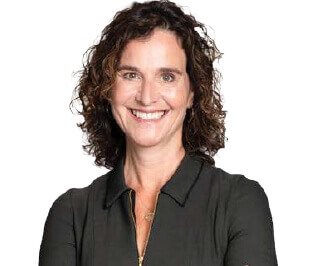Good old you
As a discipline, marketing skews young. In this year’s Marketing Week Career and Salary Survey, almost half of those responding were between 26 and 35 – way more than would be representative of that cohort in the overall working population. Just 14% were between 46 and 65.
In both the US and UK, according to industry surveys, chief marketing officers are the youngest in the C-suite, with one US survey citing the average CMO age at 39, versus ages in the mid-40s for disciplines such as finance and HR.
And if we venture to the periphery of our discipline, and zoom down on just communications, it seems our cast of specialists is more fresh-faced still. Mark Read, chief executive of WPP, claimed in a 2020 results presentation that the average age of its workforce was under 30, adding that this means its employees “don’t hark back to the 1980s – luckily”.
Read, predictably, was castigated for the blatancy of that youth bias by those who call for diversity in all aspects of employee makeup – very much including miles on the clock.
It is a theme increasingly picked up at the more general commercial level by commentators looking to make businesses not just fairer but better at what they do. In a Sunday Times piece earlier this month, former entrepreneur Martha Lane Fox claimed that business needs its older heads for their wisdom and their “war stories”.
The summer also brought a business news story that would seem to give a fillip to the Lane Fox viewpoint, and to all those extolling the virtues of age, when The Walt Disney Company announced that it had extended the tenure of its 72-year-old chief executive, Bob Iger, to 2026.
Isn’t that evidence of the point that the wisdom of age is what even the most forward-looking, tech-based companies are seeking now?
Well, no.
Go through Iger’s record and what do you see? Courage, farsightedness, integrity, ambition – under his first 15-year tenure, Disney’s stock surged from $24 to $148 a share. He is driven, famously, by “the relentless pursuit of perfection”. And he is unfailingly more interested in the story of the future than the past.

If wisdom is part of that makeup – judgement might be a more accurate word – it is because he has always displayed it, not because his age happens to start with a seven.
The question that marketing leaders should be asking when considering hiring, or retaining, a person at any level should be the same as that which, presumably, drove Disney: is this person exceptional? Are they so good at what they do that we can feel sure they are up to the job?
But where might that take us, in terms of the age profile of the discipline? If we accept that good people can be found at all ages, doesn’t it mean that age diversity would be naturally achieved?
It’s not that simple if you think about it. The longer in tenure a person is, the more any weaknesses or lack of ability will come to the fore. At the junior level, nobody expects too much, and newbies are given the benefit of the doubt. As they go up the experience ladder it will become more obvious who the good, and not so good, people are. Combine that with the greater salary costs at senior levels and you can see why a thinning out of older people across the discipline is inevitable.
Excellence is what leaders should seek. Marketing success is the ambition. Diversity of outcomes is not part of the plan. And while diversity of gender and ethnicity might make automatic good sense in pursuit of that ambition, diversity of age, on the sole premise of somehow ensuring wiser actions, is harder to justify.
But here, my own faculties for wisdom, such as they are, tell me to look in the other direction for the rest of this column, towards those who feel they are being ‘managed out’ due to their age – because behind abstract terms like diversity, or its lack, there is always a personal human drama being played out.
To those whose increasing years in tenure inversely correlates with their sense of job security, I would suggest the following, not necessarily easy, approach.
It would start with a candid look in the (metaphorical) mirror before asking, ‘Would you hire you’? The question will allow you to justly enumerate strengths but will also act as a prompt to identify gaps.
And there will be gaps. When was the last time you engaged in training to master a new skill or focus on a key subset of the discipline? If that can’t be agreed as part of your current package, then set aside some of your own resources to do it.
That applies especially if you expect there to be a ‘career gap’ between positions coming up. One senior marketer I know used an enforced break between roles to take a Master’s in data science. It built confidence, buttressed her CV and gave her an important new skill to take to her subsequent role.
There are also things not to do. With the greatest respect to Martha Lane Fox, nobody is interested in your war stories (see under Mark Read, above). The problem is simple; they will always relate to the last war when the business is trying to work out how to fight the next one.
And in any case, wisdom, if you are blessed with it, is always far better demonstrated than articulated. “We tried that before and it didn’t work” is not going to endear you to your colleagues, and may in any case not turn out to be true in the new contextual environment.
Finally, by all means, when you see an example of a septuagenarian, like Iger, still hitting the high notes, take it as inspiration. But rather than say to yourself, ‘It’s really good that somebody of that age can be in demand’, try saying, ‘There is only one way to be in demand at any age – and that is to be really good’.
